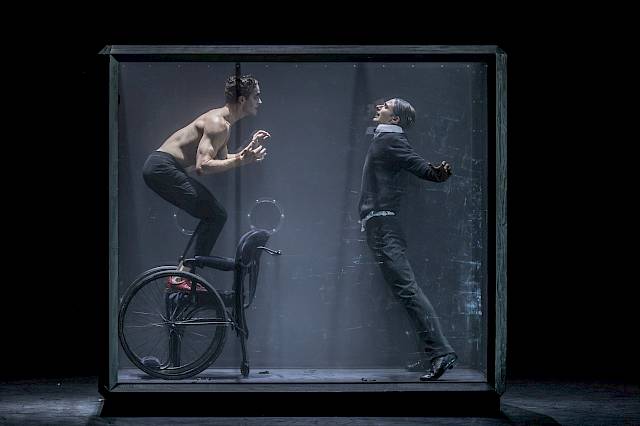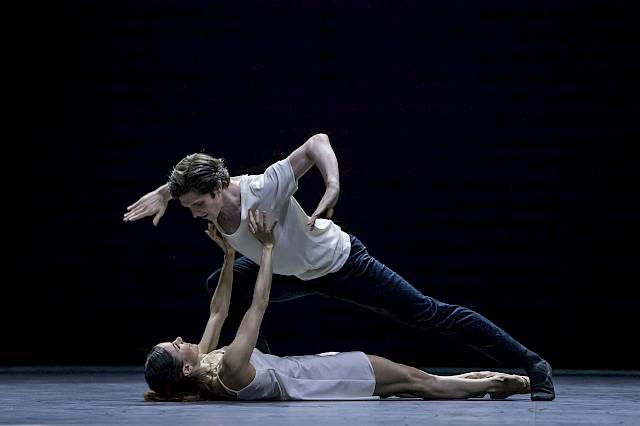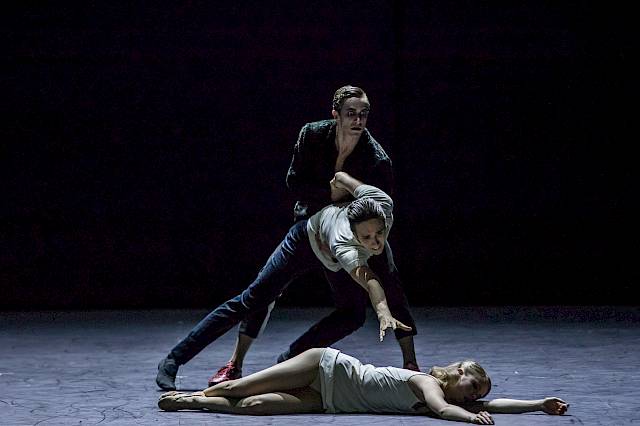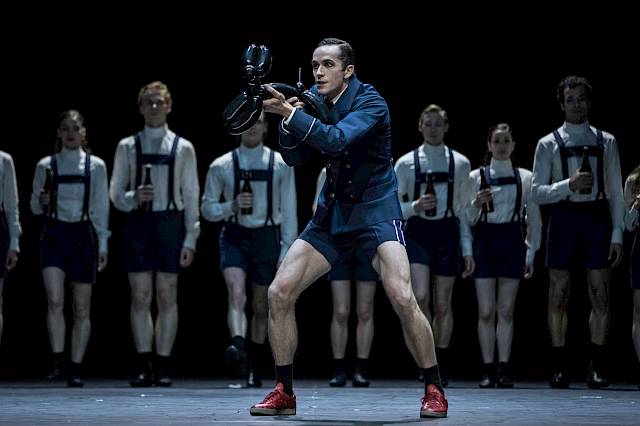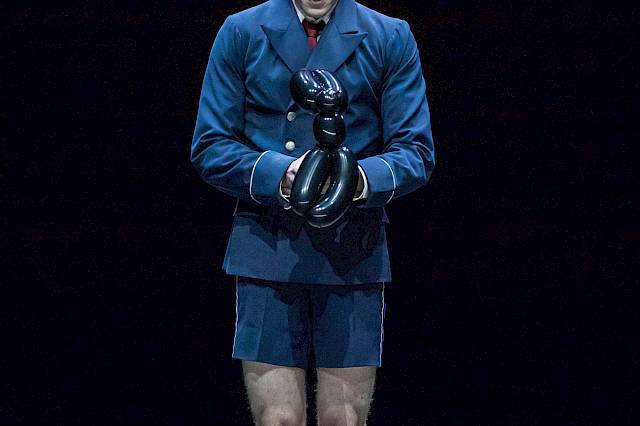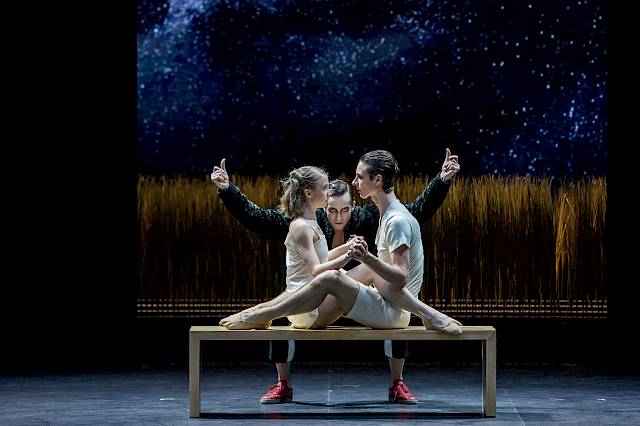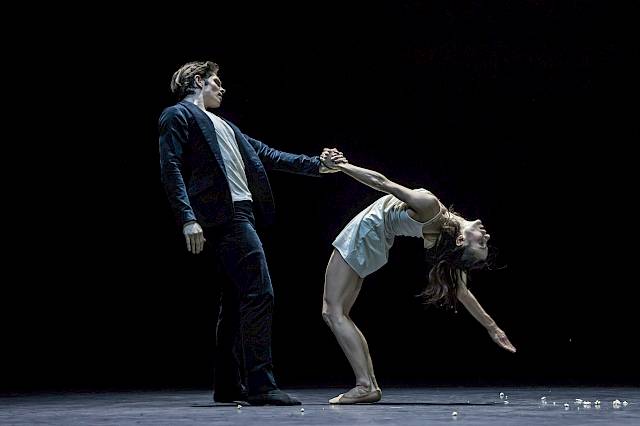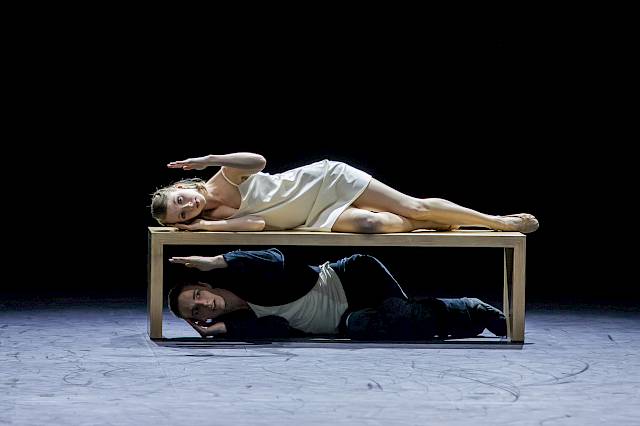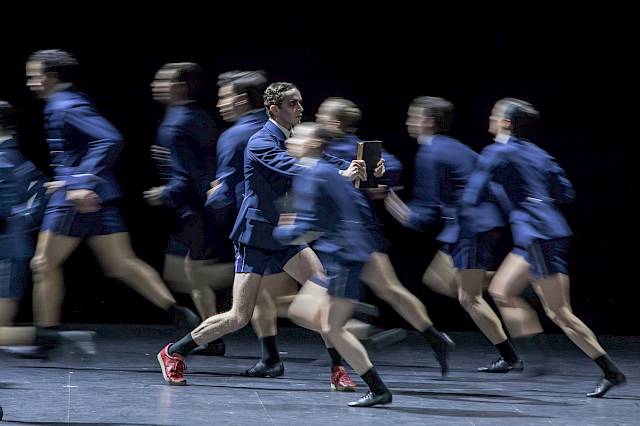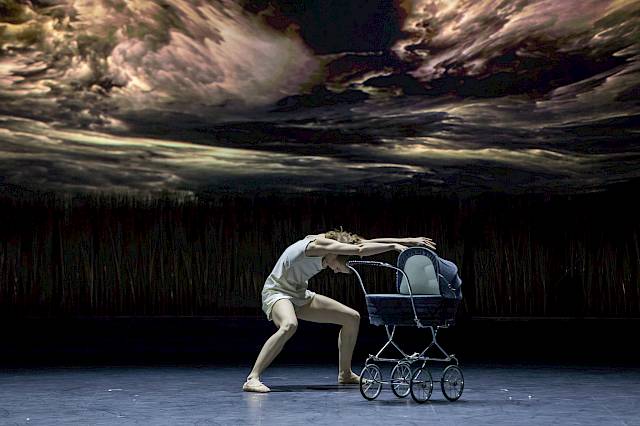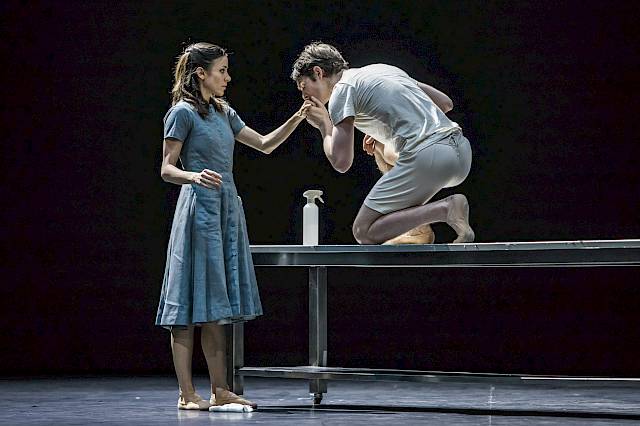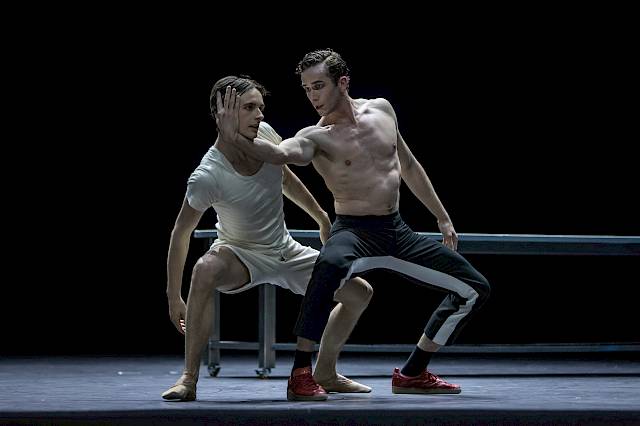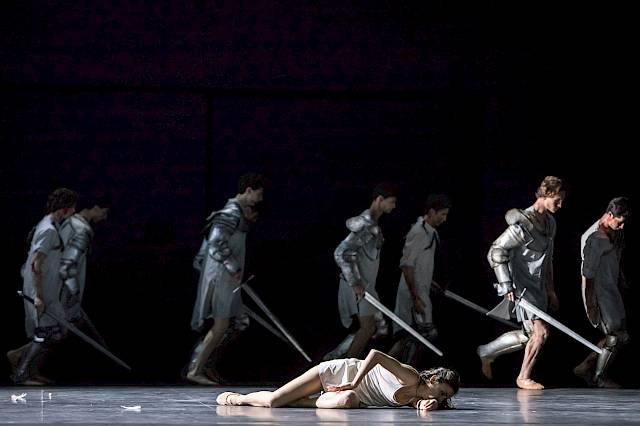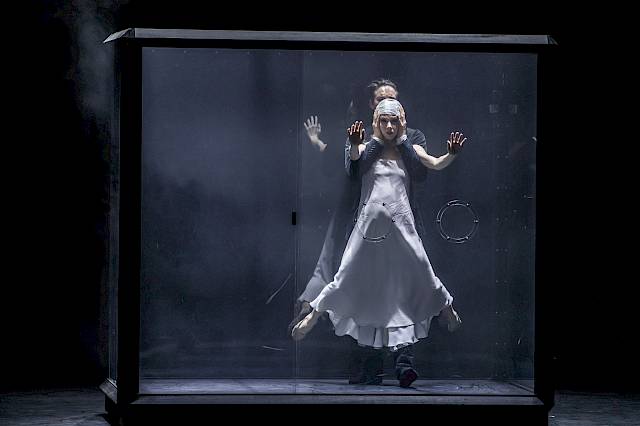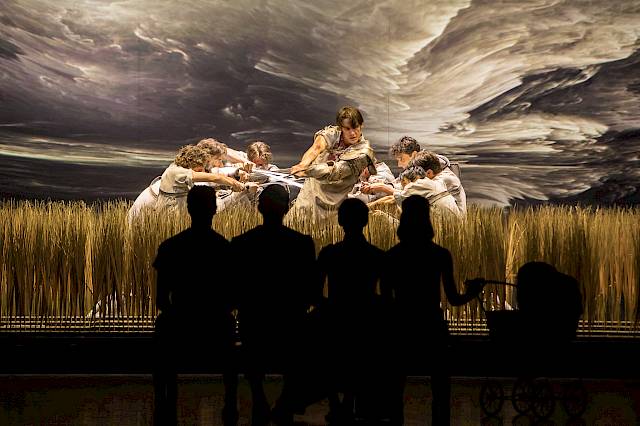Faust - The Ballet
Ballet by Edward Clug
Music by Milko Lazar
After «Faust. A Tragedy» by Johann Wolfgang von Goethe
Duration 2 H. incl. intermission after 1st part after approx. 50 Min. Introduction 45 min before the performance.
Introductory matinee on 22 Apr 2018.
Partner Ballett Zürich 
Past performances
April 2018
May 2018
June 2018
Good to know
Faust - The Ballet
Abstract
Faust - The Ballet
The legend of the scholar Faust, the devil Mephisto and the innocently seduced Gretchen is one of the most powerful stories in dramatic literature. Taken from a book of folk tales dating from the 16th century and transformed into a major work of western literature by Johann Wolfgang von Goethe, the Faust story has inspired countless artists to various treatments and adaptations.
For this Ballett Zürich world première, choreographer Edward Clug has now taken on Goethe’s version of the Faust story, which centres on the self-absorbed, doubting intellectual Faust, who is driven by his ceaseless thirst for knowledge. He fails when he attempts to “perceive whatever holds the world together in its innermost folds.” As a singularly modern figure and a symbol of the human hubris of our time, Faust also takes centre stage for Edward Clug, but the choreographer is also interested in the story of Gretchen’s sacrifice and the hellish portrayal of the Walpurgis Night.
Any choreographer who takes on Faust, an icon of world literature, will need to be courageous, possess artistic ability and an imaginative approach to narrative dance. The principal of the Slovenian National Ballet in Maribor most recently proved that he fulfils all these requirements with his acclaimed Zurich reinterpretation of Igor Stravinsky’s Le Sacre du printemps. Together with set designer Marko Japelj and costume designer Leo Kulaš, Edward Clug will stage Faust as a full-length narrative ballet. Once again, he will collaborate with Milko Lazar, one of Slovenia’s most renowned composers. The young Russian conductor Mikhail Agrest will conduct the world première of this new ballet.
Backstage
Composer Milko Lazar talks about «Faust – The Ballet»
Biographies
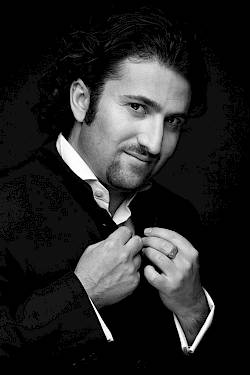
Mikhail Agrest,
Mikhail Agrest
Mikhail Agrest stammt aus St. Petersburg. An der Indiana University School in Bloomington absolvierte er ein Violinstudium. Nach St. Petersburg zurückgekehrt, widmete er sich dem Dirigierstudium bei Ilya Musin und Mariss Jansons. Als Dirigent am Mariinsky-Theater erarbeitete er sich über einen Zeitraum von mehr als zehn Jahren ein breites Repertoire in Oper, Ballett und Sinfonik. 2003 debütierte er mit Rimski-Korsakows Legende von der unsichtbaren Stadt Kitesch an der Metropolitan Opera in New York. Weitere Opernprojekte waren Tosca an der Königlichen Oper Stockholm, Don Giovanni an der Opera Australia, Jenůfa an der English National Opera sowie La bohème und Eugen Onegin an der Finnischen Nationaloper in Helsinki. Am Royal Opera House Covent Garden dirigierte er Le Sacre du printemps, Les Noces und Romeo und Julia. Eine enge Zusammenarbeit verbindet ihn mit der Dresdner Semperoper. Hier leitete er Aufführungen von Schwanda, der Dudelsackpfeifer (Weinberger), Moskau, Tscherjomuschki (Schostakowitsch), Romeo und Julia und La traviata. An der Scottish National Orchestra dirigierte er Der feurige Engel. Mikhail Agrest trat mit zahlreichen renommierten Orchestern auf der ganzen Welt auf, u.a. mit dem Orchestre Philharmonique de Radio France, dem Houston Symphony Orchestra, dem Bournemouth Symphony Orchestra, dem London Philharmonic Orchestra, dem BBC Symphony Orchestra, dem Gewandhausorchester Leipzig, der Staatskapelle Dresden, der Dresdner Philharmonie, dem Seoul Philharmonic Orchestra, dem Seattle Symphonie Orchestra und dem Vancouver Symphony Orchestra. Geplant ist das Debüt beim Bruckner-Orchester Linz.
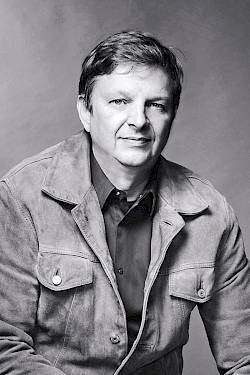
Marko Japelj,
Marko Japelj
Marko Japelj stammt aus Maribor (Slowenien). Er studierte Architektur in Ljubljana. 1986 entstand sein erstes Bühnenbild für Hedda Gabler an der Theaterakademie Ljubljana. Mittlerweile realisierte er fast 200 Bühnenbilder für Drama und Musiktheater. Viele davon wurden ausgezeichnet. Als Gastprofessor leitete er drei Semester die Meisterklasse für Film und Bühnengestaltung an der Hochschule für angewandte Kunst in Wien. Er arbeitete mit zahlreichen Theatern in Slowenien und Europa, u.a. für die Opernhäuser in Bukarest, Riga, Metz, Bratislava sowie die Wiener Staatsoper, die Nationaltheater in Zagreb, Rijeka und Belgrad, das Nederlands Dans Theater, das Ballet Vlaanderen in Antwerpen, das Aalto Theater Essen und die Theater Augsburg, Dortmund und Wuppertal. Für Edward Clug realisierte er die Bühnenbilder zu Tango, Lacrimas, Radio & Juliet, Prêt-à-porter, Watching others, The Architecture of Silence, Hill Harper’s Dream, Le Sacre du printemps, Six Antique Epigraphs, Les Noces, Chamber Minds, Peer Gynt, Hora und Proof. Für Filipe Portugal und das Ballett Zürich entstand das Bühnenbild zu disTANZ.
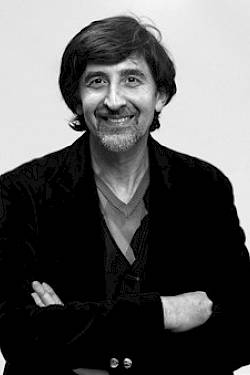
Leo Kulaš,
Leo Kulaš
Leo Kulaš ist Bühnen- und Kostümbildner. Er studierte an der Akademie für Angewandte Kunst in Belgrad. Im ehemaligen Jugoslawien schuf er die Kostüme für über 150 Theater-, Opern- und Ballettproduktionen. Mit Roberto Ciulli arbeitete er am Theater an der Ruhr und an Paolo Magellis «Teatro Metastasio della Toscana». Am Slowenischen Mladinsko Theatre und am Slowenischen Nationaltheater Maribor arbeitete er mit der Kostümbildnerin Svetlana Visintin zusammen. Für La divina commedia am Slowenischen Nationaltheater Maribor wurde er mit dem «Maribor Theatre Festival Award» und dem «Prešeren Fund Award» ausgezeichnet, 2008 erhielt er den «Maribor Theatre Festival Award» für Das Käthchen von Heilbronn in Ljubljana. Auch ausserhalb Sloweniens hat Leo Kulaš mit namhaften Regisseuren zusammengearbeitet. Seine Arbeiten waren u.a. am Theater Dortmund, am Thalia Theater Hamburg, an der Staatsoper Hannover, an der Oper Sofia, am Landestheater Linz, an der Wiener Staatsoper, an der Lettische Nationaloper in Riga und am Moskauer Bolschoitheater zu sehen. Er schuf die Kostüme für Edward Clugs Ballette Tango, Lacrimas, Radio &Juliet, Prêt-à-porter, Watching Others, Sketches und The Architecture of Silence, Hill Harper’s Dream, Le Sacre du printemps, Six Antique Epigraphs, Les Noces, Chamber Minds und Peer Gynt. Ausserdem ist er als Kostümbildner für Film und Fernsehen tätig. Am Theater St. Gallen entwarf er die Kostüme für das Musical Flashdance.
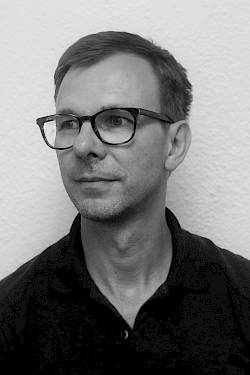
Martin Gebhardt,
Martin Gebhardt
Martin Gebhardt war Lichtgestalter und Beleuchtungsmeister bei John Neumeiers Hamburg Ballett. Ab 2002 arbeitete er mit Heinz Spoerli und dem Ballett Zürich zusammen. Ballettproduktionen der beiden Compagnien führten ihn an renommierte Theater in Europa, Asien und Amerika. Am Opernhaus Zürich schuf er das Lichtdesign für Inszenierungen von Jürgen Flimm, Grischa Asagaroff, Matthias Hartmann, David Pountney, Moshe Leiser/Patrice Caurier, Damiano Michieletto und Achim Freyer. Bei den Salzburger Festspielen kreierte er die Lichtgestaltung für La bohème und eine Neufassung von Spoerlis Der Tod und das Mädchen. Seit der Spielzeit 2012/13 ist Martin Gebhardt Leiter der Beleuchtung am Opernhaus Zürich. Eine enge Zusammenarbeit verbindet ihn heute mit dem Choreografen Christian Spuck (u. a. Winterreise, Nussknacker und Mausekönig, Messa da Requiem, Anna Karenina, Woyzeck, Der Sandmann, Leonce und Lena, Das Mädchen mit den Schwefelhölzern, Dornröschen). Er war ausserdem Lichtdesigner für die Choreografen Edward Clug (u.a. Strings, Le Sacre du printemps und Faust in Zürich; Petruschka am Moskauer Bolschoitheater), Alexei Ratmansky, Wayne McGregor, Marco Goecke und Douglas Lee. Mit Christoph Marthaler und Anna Viebrock arbeitete er beim Händel-Abend Sale, Rossinis Il viaggio a Reims und Glucks Orfeo ed Euridice in Zürich sowie bei Lulu an der Hamburgischen Staatsoper. 2020 gestaltete er das Licht an der Oper Genf für Les Huguenots in der Regie von Jossi Wieler und Sergio Morabito. 2021 folgte Christian Spucks Orlando am Moskauer Bolschoitheater und 2022 Don Giovanni am New National Theatre Toyko.
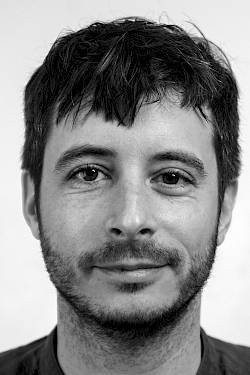
Tieni Burkhalter,
Tieni Burkhalter
Tieni Burkhalter studierte Bildende Kunst an der Zürcher Hochschule der Künste (ZHdK), wo er sich auf Video und Videoinstallation spezialisierte. Seine Werke wurden sowohl an Ausstellungen als auch an Experimentalfilmfestivals, u.a. der Videoex in Zürich und der Biennale de l’image en mouvement in Genf, gezeigt. Daneben war er als freier Mitarbeiter für das Schweizer Fernsehen sowie für verschiedene Filmagenturen als Kameramann und Ausstatter tätig und unterstützt bis heute zahlreiche Zürcher Galerien in Zusammenarbeit mit ihren Künstler:innen. Seit 2009 ist er als Videoproduzent für die Bühne tätig: Am Opernhaus Zürich waren seine Arbeiten bisher Teil von Der fliegende Holländer und Land des Lächelns (Andreas Homoki), A-Life (Choreografie: Douglas Lee), Anna Karenina und Das Mädchen mit den Schwefelhölzern (Christian Spuck), Pelléas et Mélisande und Die Sache Makropulos (Dmitri Tcherniakov), Faust (Edward Clug), Coraline (Nina Russi), Il trovatore (Adele Thomas) und Die Odyssee (Rainer Holzapfel). Für Dmitri Tcherniakov produzierte er ferner das Videodesign für Senza Sangue/ Herzog Blaubarts Burg an der Staatsoper Hamburg, La Fille de Neige und Les Troyens an der Opéra National de Paris und Tristan und Isolde an der Staatsoper Unter den Linden in Berlin.
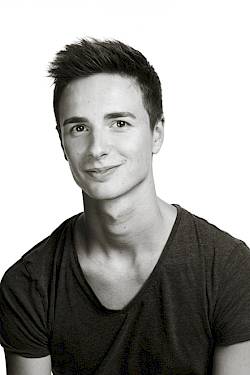
Jan Casier,
Jan Casier
Jan Casier was born in Belgium. He studied at the Royal Ballet School in Antwerp. From 2008 to 2012 he was a member of the Royal Ballet of Flanders where he danced in ballets by John Cranko, William Forsythe, David Dawson and Christian Spuck. He appeared in David Dawson’s Faun(e) as a guest at the English National Ballet. From 2012 to 2014 he was a member of Ballett Zürich, where he performed roles in numerous Christian Spuck ballets, including Leonce in Leonce und Lena, Paris in Romeo und Julia and the title role of Woyzeck. He also danced in choreographies by Edward Clug, Sol León/Paul Lightfoot, Marco Goecke and Wayne McGregor. From 2014 to 2016 he was a member of the Semperoper Ballett Dresden. There he performed in choreographies by Aaron Watkins (Prince in The Nutcracker), William Forsythe, Alexei Ratmansky, David Dawson and Alexander Ekman. Jan Casier returned to Ballett Zürich in 2016. Since his return, he has danced in Forsythe’s Quintett, Godani’s rituals from another when and the title role in Edward Clug’s Faust and Marco Goecke’s Nijinski. He also appeared as Drosselmeier in Christian Spuck’s Nussknacker und Mausekönig. In 2019, he was named «Dancer of the Year» by the «tanz» magazine and was awarded the «Tanzpreis der Freunde des Balletts Zürich».
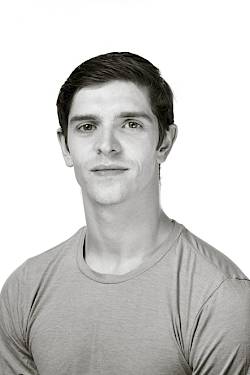
Matthew Knight,
Matthew Knight
Matthew Knight is British. He completed his training at the Elmhurst School and the Royal Ballet School in London. After a season with the Junior Ballett, he joined Ballett Zürich in the 2014/15 season. He presented Jane Doe and Mocambo as part of the «Junge Choreografen» series. He has danced in choreographies by Mats Ek (Cavalier in Dornröschen), William Forsythe, Marco Goecke (Moor in Petruschka), Jiří Kylián, Douglas Lee, Sol León/Paul Lightfoot, Hans van Manen, Wayne McGregor, Ohad Naharin, Crystal Pite, and Filipe Portugal. He was Leonce in Christian Spuck’s Leonce und Lena, Nathanael in Spuck’s Der Sandmann and the Clown in Spuck’s Nussknacker und Mausekönig. In 2018 he also appeared as the title roles in Edward Clug’s Faust and in Marco Goecke’s Nijinski. In 2016 he was awarded the «Tanzpreis der Freunde des Balletts Zürich».
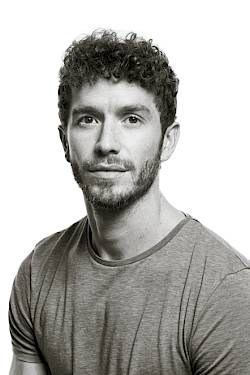
William Moore,
William Moore
William Moore is British and studied at the Royal Ballet School in London. He has won prizes at international ballet competitions. He has belonged to the Stuttgart Ballet since 2005 and was appointed as principal dancer there in 2010. Important roles were Siegfried in Schwanensee, Lensky in Onegin and Lucentio in Der Widerspenstigen Zähmung (all by John Cranko), Armand in Neumeier’s Kameliendame, Leonce in Christian Spuck’s Leonce und Lena, the title role in Marco Goecke’s Orlando, Albrecht in Giselle by Anderson/Savina, Colas in Ashton’s La fille mal gardée. In 2012 William Moore was awarded the German Theater Prize «Der Faust». Since the 2012/13 season he has been first soloist with Ballett Zürich. Important roles include Romeo in Spuck’s Romeo und Julia, Vronsky in Anna Karenina, the Nutcracker in Spuck’s Nussknacker und Mausekönig, Mephisto in Faust by Edward Clug, Petruschka in the choreography by Marco Goecke, and Diaghilev in Goecke’s Nijinski. He has also appeared in pieces by Wayne McGregor, Sol León/Paul Lightfoot, Douglas Lee, and Jiří Kylián. In 2018 he received the «Tanzpreis der Freunde des Balletts Zürich».
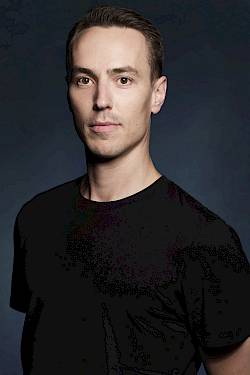
Daniel Mulligan,
Daniel Mulligan
Daniel Mulligan comes from Great Britain and studied at the Royal Ballet School in London. After two seasons with the Junior Ballett, he joined Ballett Zürich in the 2009/10 season. He has appeared as a soloist in many of Heinz Spoerli’s choreographies. He danced Mercutio/Benvolio in Christian Spuck’s Romeo und Julia as well as in ballets by Mats Ek (Dornröschen), Hans van Manen (Solo, Kammerballett), Edward Clug (Chamber Minds, Le Sacre du printemps), Sol León/Paul Lightfoot (Skew-Whiff, Speak for Yourself), William Forsythe (Quintett), Jiří Kylián (Gods and Dogs, Stepping Stones, Sweet Dreams), Ohad Naharin (Minus 16), Marco Goecke (Petruschka), Filipe Portugal (Corpus), Douglas Lee, and Crystal Pite. Recent leading roles have included Mephisto in Faust by Edward Clug, Fritz and the Clown in Spuck’s Nussknacker und Mausekönig, as well as Stiva in Spuck’s Anna Karenina.
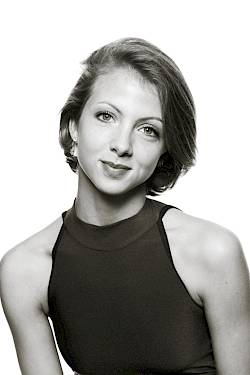
Michelle Willems,
Michelle Willems
Michelle Willems is French. She studied at the Bolshoi Ballet Academy and at the Atelier Rudra-Béjart in Lausanne. After two seasons with the Junior Ballett, she joined Ballett Zürich in the 2016/17 season. After solo roles in Giselle and Schwanensee, she danced Kitty in Christian Spuck’s Anna Karenina, Marie in Spuck’s Nussknacker und Mausekönig and Gretchen in Edward Clug’s Faust, and in Spuck’s Das Mädchen mit den Schwefelhölzern. She has also appeared in choreographies by William Forsythe, Jiří Kylián, Marco Goecke, Crystal Pite, George Balanchine, Ohad Naharin, Douglas Lee, and Filipe Portugal She was awarded the «Tanzpreis der Freunde des Balletts Zürich» in 2018.
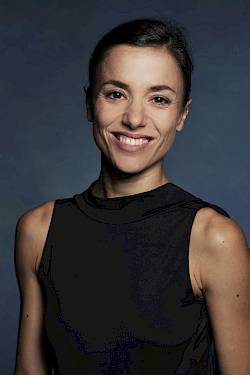
Giulia Tonelli,
Giulia Tonelli
Giulia Tonelli comes from Italy. She graduated from the Balletto di Toscana and the Ballet School of the Vienna State Opera. After her first engagement at the Vienna State Opera, she danced from 2002 to 2010 with the Royal Ballet of Flanders in Antwerp and from 2004 as a demi-soloist. There she danced Giselle (Petipa) as well as solo roles in choreographies of Forsythe, Balanchine, Kylián, Haydée and Spuck. She has been a member of Ballett Zürich since the 2010/11 season, where she has performed ballets by Spoerli, Goecke, McGregor, Lee, Forsythe, Kylián and Balanchine. She danced Julia in Christian Spuck’s Romeo und Julia, Lena in Spuck’s Leonce und Lena and Betsy in Anna Karenina. In Alexei Ratmansky’s Schwanensee reconstruction she danced in the Pas de trois and she also performed in Forsythe’s Quintett and Spuck’s Messa da Requiem. Last season’s highlights include Emergence by Crystal Pite and Gretchen in Edward Clug’s Faust. During the «Junge Choreografen» series she presented the works Mind Games and Klastos together with Mélissa Ligurgo. In 2013 she was awarded the Giuliana Penzi Prize. In 2017 she received the «Tanzpreis der Freunde des Balletts Zürich».
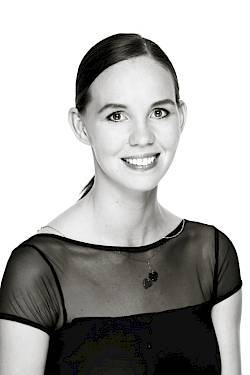
Viktorina Kapitonova,
Viktorina Kapitonova
Viktorina Kapitonova, who is a native of Russia, studied at the Kazan Ballet School and Moscow’s Bolshoi Theatre Academy. The winner of both the Young Ballet of Russia competition and the Arabesque contest of 2008, from 2005 onwards she danced at the Jalil Opera House in Kazan, performing solo roles in Swan Lake, The Sleeping Beauty, Don Quixote, La Bayadère, Coppélia and The Nutcracker. She was a member of the Stanislavsky Ballet for the 2008/09 season; and she joined Ballett Zürich in 2010, since when her performances have included Odette/Odile in Heinz Spoerli’s Swan Lake, solos in Spoerli’s A Midsummer Night’s Dream, Wäre heute morgen und gestern jetzt, ...und mied den Wind and Goldberg Variations, Rosetta in Christian Spuck’s Leonce and Lena, the nurse in Spuck’s Romeo and Juliet and the leading role in Spuck’s Anna Karenina. She has also been seen in choreographies by Balanchine, Ek, Forsythe, Kylián, Lee, McGregor and Schläpfer. She presented her choreography Two Bodies – One Soul as part of the company’s Young Choreographers programme. As Giselle/Myrtha she was seen in Patrice Bart’s Giselle, alongside Roberto Bolle and Friedemann Vogel. She was also the recipient of the Friends of Ballett Zürich’s Dance Prize for 2015. Last season her roles included Odette/Odile in the reconstruction of Swan Lake by Alexei Ratmansky as well as Olimpia in Christian Spuck’s Der Sandmann.
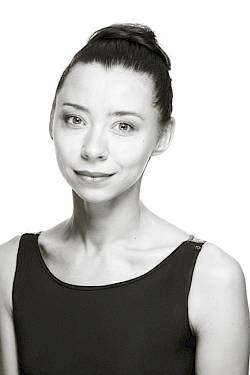
Anna Khamzina,
Anna Khamzina
Anna Khamzina comes from Russia and received her dance education at the Natalia Trishina and Yuly Medvedev School of Classic Dance. She was a principal dancer at the Stanislavsky and Nemirovich-Danchenko Moscow Academic Music Theater in Moscow, where she appeared as Giselle, in the title role of John Neumeier's Die kleine Meerjungfrau (for which she was awarded the Golden Mask Theater Prize), as well as in Vladimir Burmeister's Schwanensee and La Esmeralda, Dmitry Bryantsev's Illusive Ball and Pierre Lacotte’s La Sylphide. She has also worked with choreographers such as Jiří Kylián, Jorma Elo and Nacho Duato. From 2013 to 2015 she danced at the Aalto Ballet Theater Essen. There she was seen as the Good Fairy (Cinderella), Titania (Ein Sommernachtstraum) and Giselle (David Dawson). She has been a member of the Ballett Zürich since the 2015/16 season. She has appeared as Odette/Odile in Alexei Ratmansky's Schwanensee reconstruction, as Olympia in Christian Spuck's Der Sandmann, in Forsythe's Quintett and Godani’s rituals from another when, as well as in the title role of Christian Spuck's Anna Karenina.
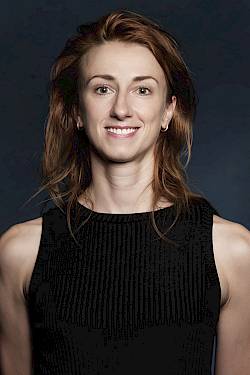
Elena Vostrotina,
Elena Vostrotina
Elena Vostrotina comes from St. Petersburg. She received her ballet education at the Vaganova Academy of Russian Ballet. In 2003 she became a member of the Mariinsky Ballet. There she danced among others Odette/Odile in Schwanensee (Petipa/Ivanov), Myrtha in Giselle (Coralli/Perrot), Queen of the Dryads in Don Quixote (Gorsky) and in Approximate Sonata (Forsythe). In 2006 she was engaged by Aaron S. Watkin at the Semperoper Ballett Dresden. Here she was appointed principal dancer and danced a wide repertoire of classical, neoclassical and modern ballets. She has collaborated with renowned choreographers and performed at the Stanislavsky and Nemirovich-Danchenko Moscow Academic Music Theater in Moscow, at the State Theater Novosibirsk, at the gala «Roberto Bolle and Friends», and at the Ballets Bubeníček. Elena Vostrotina has been a first soloist at Ballett Zürich since the 2017/18 season, where season she has appeared as Odette/Odile in Ratmansky’s Schwanensee reconstruction, as the nursemaid in Christian Spuck’s Romeo und Julia, Myrtha in Patrice Bart’s Giselle as well as in Christian Spuck’s Nussknacker und Mausekönig, Winterreise and Nocturne.
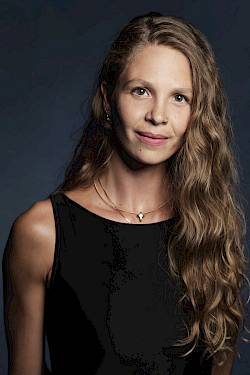
Francesca Dell'Aria,
Francesca Dell'Aria
Francesca Dell’Aria comes from Italy. She received her training at the Elmhurst School and the Birmingham Royal Ballet. After an engagement with the Slovak National Ballet, she was a member of the Bayerisches Staatsballett from 2010 to 2014. She has belonged to Ballett Zürich since the 2014/15 season and has appeared in choreographies by William Forsythe (New Sleep, workwithinwork, In the middle, The Second Detail), Jiří Kylián (Gods and Dogs, Falling Angels), George Balanchine, Hans van Manen (Kammerballett) Jacopo Godani, Douglas Lee, Edward Clug, Marco Goecke (Nijinski), and Crystal Pite. She also appeared in the title role of Christian Spuck’s Anna Karenina and as Myrtha in Patrice Bart’s Giselle. She was awarded with the «Tanzpreis der Freunde des Balletts Zürich» in 2019.
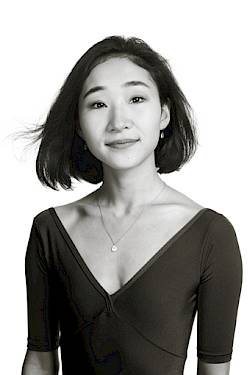
Meiri Maeda,
Meiri Maeda
Meiri Maeda is Japanese. She received her training at the Nobuko Okamoto Ballet Academy, at the Kirov Academy of Ballet in Washington and at the Académie Princesse Grace in Monte-Carlo. After two seasons with the Junior Ballett, she joined Ballett Zürich in the 2016/17 season. She has appeared as Marie in Christian Spuck’s Nussknacker und Mausekönig, in Forsythe’s The Second Detail, One Flat thing, reproduced, and In the middle, in Ratmansky’s Schwanensee reconstruction (4 small swans), in Emergence by Crystal Pite, and Bella Figura by Jiří Kylián.
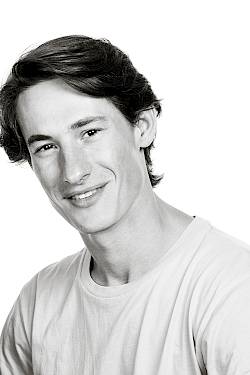
Alexander Jones,
Alexander Jones
Alexander Jones comes from Great Britain. He received his dance training at the Royal Ballet School in London. In 2004 he won the gold medal in the Adeline Genée Competition and the Dame Ninette de Valois Prize. In the 2005/06 season he became a member of the Stuttgart Ballet, where he was appointed principal dancer in 2011/12. In Stuttgart he has appeared as Armand Duval in Neumeier’s Kameliendame, Romeo in Cranko’s Romeo und Julia, in the title roles of Cranko’s Onegin and Kevin O’Days Hamlet, as Basilio in Maximiliano Guerra’s Don Quixote and in MacMillan’s Lied von der Erde. He has also danced in choreographies by Balanchine, Robbins, Ashton, Schaufuss, Tetley, Béjart, Haydée, van Manen, Forsythe, Lee, McGregor, Clug, and Spuck. Alexander Jones has been a first soloist of Ballett Zürich since the 2015/16 season. Here he has danced Prince Siegfried in Alexei Ratmansky’s Schwanensee reconstruction, Albrecht in Patrice Bart’s Giselle and Romeo in Romeo und Julia, Nathanael in Der Sandmann and Vronsky in Anna Karenina (all by Christian Spuck), among others.


